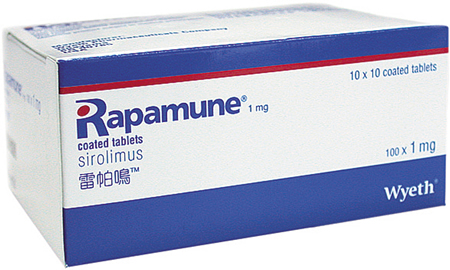High levels of iron in the body can, as we know, lead to some serious health problems, as I documented in my book, Dumping Iron. Among these problems, high iron leads to low testosterone. If you have low testosterone, it’s possible that the simple fix of lowering an abnormally high iron level could solve your problem.
Hemochromatosis and low testosterone
Hemochromatosis is the genetic condition which leads to high body iron levels. Ferritin, the most reliable measure of body iron, may be very elevated in hemochromatosis, up to thousands of ng/ml, compared to the normal range of 20-500 for men and 20-200 for women, according to the Mayo Clinic.
Men who have hemochromatosis often have hypogonadism, a condition of low testosterone, low sex drive, and infertility.
Iron depletion, via phlebotomy (blood removal), can cure hypogonadism, leading to normal testosterone, sex drive, and fertility.
But if you don’t have hemochromatosis, but just slightly high iron levels, could that lead to low testosterone? Maybe you wouldn’t have full-blown hypogonadism, but could your testosterone be lower than you’d like, resulting in low T symptoms, like low energy, low sex drive, and erectile dysfunction?
It appears that the answer is yes, high iron could be causing low testosterone.
I’m hearing anecdotes from my network that lowering iron in men has resulted in higher testosterone levels.
Normal iron isn’t normal
As mentioned above, the Mayo Clinic defines normal iron for men as 20-500 ng/ml. However, the upper limit of that range is far too high for good health.
For optimal health, men should have a ferritin no higher than 100.
In men with iron levels within the normal range, that is, less than 500, iron is inversely correlated with testosterone.
The men in this study had an average iron (ferritin) level of 318 ng/ml, high by our standards but well within the Mayo Clinic’s normal range. Their average testosterone was 627 ng/dl, quite respectable, although they were in young middle age, average age 37. Normal range for testosterone is 264-916.
The higher the men’s ferritin, the lower their testosterone, even though none of the men had pathologically high levels, as mainstream medicine defines them.
While the inverse correlation of iron and testosterone didn’t rise to the levels seen in pathologically high iron – hemochromatosis and hypogonadism – it seems entirely possible that getting iron to a healthy normal, 100 ng/ml or below, could be good for a decent increase in testosterone, say 100 points or more.
If so, then the anecdotes I’m hearing about men raising their T levels by lowering their iron are not only true, but show causality.
Testosterone lowers ferritin
When men supplemented testosterone, their ferritin declined.
The reason: testosterone caused an increase in hematocrit, which is the percentage of the blood that is composed of red blood cells. Low testosterone can lead to anemia, and increasing testosterone can treat that anemia. (There are many causes of anemia, so testosterone doesn’t necessarily treat every type of anemia.)
When you make more red blood cells, iron is required. By drawing from body iron stores, increased red blood cell production therefore decreases ferritin, or body iron. Red blood cells represent the single biggest repository of body iron.
The interplay of ferritin and testosterone is complex, and it appears they both affect each other.
High ferritin levels also lead to oxidative stress and chronic inflammation, both of which are death to testosterone.
Since testosterone increases the absorption of iron via the hormone hepcidin, iron in turn negatively regulates testosterone. Boom.
“Crosstalk between testosterone and iron has significant implications in testosterone deficiency and therapy. Additionally, the regulation of testosterone by iron may indicate a significant role for iron in the development of the hypogonadotropic hypogonadism of aging and chronic disease.”
Older men are more likely to have low testosterone, and they are also more likely to have increased ferritin.
Paradoxically, high ferritin levels are associated with lower hemoglobin and hematocrit, as Dr. Zacharski and colleagues found in both normal people and diabetics.
Some of this relation between higher ferritin and lower hemoglobin could be mediated by testosterone. That is, higher ferritin -> lower testosterone -> lower hemoglobin and hematocrit.
Therefore getting ferritin into the safe range of 100 or below could not only increase testosterone, but improve exercise capacity by increasing hematocrit.
Conclusion
Very high iron levels as seen in hemochromatosis can lead to low testosterone, low sex drive, and infertility.
But iron that is only slightly high and within the conventional normal range may also decrease testosterone.
If you have lower testosterone than you’d like, your iron (ferritin) level may be one place to look for an answer.











45 Comments
Can a ferritin test get around the issue of testing for hypogonadism while I’m trying to sort out/fix my hasimoto’s? The doc won’t bother testing my Testosterone until the Thyroid hormones are stable.
No. Ferritin is very useful of course, but if you need to check testosterone, that’s what you need to test for.
@Durendel. Why would your doctor not want to test for T levels until your thyroid gets sorted out? Is the doc thinking that if you get thyroid fixed up that your testosterone will in turn fix itself?
Funnily enough i’ve Just started reading ‘Dumping Iron’. As a UK citizen I can assure you I’ve never had my ferritin or testosterone levels checked, it’s never been offered and if I asked the doctor (should I be lucky enough to see one) for such tests they would fob me off. However they are obsessed with cholesterol and did try to put me on statins.
I believe it would be true to say the NHS will not perform checks to see how well you are, only to find out how ill you are. I suppose I’m fortunate to be a blood doner.
BTW I’ve bought all your books now and more importantly acting on your advice. Best wishes and keep writing, Tony (aged 64)
Fortunately for me, my (Canadian) doctor was woke on ferritin, so he happily added it to the list of tests. He’s been reluctant to have my T levels checked, though, unless there’s some underlying indicator of a problem. I’ll plead with him again this fall, and see if I can get him to agree.
In the UK I have more chance of shooting pool with the Pope. Next time (if there is a next time) I’ll at least ask for my ferritin levels to be checked. I’ll see what response that gets.
Tony, tell your quack you have been taking low dose baby aspirin to prevent colon cancer.( That’s documented ) and thus you need to have your iron levels checked.
Why ? Because aspirin can for some people, also lead to bleeding in the gut and in the long term cause anemia…
So you need to know if this is happening to you. Simple eh !
And you get the tests you need. Bugger the statins !
Brilliant idea!
Thanks Bill ?
Thnaks, Tony. The problems you described aren’t confined to the UK, unfortunately. Unless you p;ay cash, most doctors here are the same because of health insurance. Thanks for being a reader!
Actually I’ve just done a search on Google about getting my iron checked in the UK. Every link mentioned ONLY talks about a possible lack of iron. Also when I donate blood they always do a check to see if I have enough iron. Ironically if it dropped too much they wouldn’t let me donate.
Among the several things for which I’m grateful to you, Dennis (persuading me to start lifting, dietary tips, etc.), is that I started giving blood again after reading you on ferritin.
When I first had my blood tested in late 2016, after a few donations, my ferritin was at 125, so presumably it was a bit higher before I started. 15 months later, after seven more donations, it was at 46 (“likely iron deficiency”, according to my lab results). I started lifting during this time period as well, so I guess it’s possible that increased testosterone also helped, as your describe above. I’m waiting for the next blood test with interest.
I haven’t had my T levels checked, but based on my physical condition, I’d guess it’s pretty good compared to most 50 year-old guys.
Sincere thanks, and keep up the excellent work.
That’s great, Murray, glad you’ve been successful. A ferritin of 46 is unlikely to represent iron deficiency. In studies where they’ve got people down to “near iron deficiency”, the subjects had ferritins in the teens.
So is this the test that would be needed.
https://www.anylabtestnow.com/tests/tibc/
Or this https://www.anylabtestnow.com/tests/ferritin-test/
A ferritin is a better measure of total body iron. Test here. They used to use serum iron and total TIBC awhile back, and would add that test if your ferritin was high, but those have somewhat fallen out of favor.
To reduce iron load in the body aspirin (microbleeding) and blood donations have been mentioned before,
as well as the iron-chelating effects of tea components, and phytic acid.
None of these interventions specifically target iron; its excretion is by secondary effects only.
This works well enough, but there is a specific substance that selectively binds to iron:
Cyanide.
Yes, the poisonous stuff from gas chambers and suicide pills!
It is poisonous because it binds strongly and (in respect to the human body’s biochemistry) irreversibly to iron, forming hexacyanoferrate, a complex (an adduct of iron and cyanide ions that are so strongly bound to each other that they act like a single ion in most further chemical reactions) – cyanide binds to the iron in an enzyme necessary for transporting oxygen, thereby deactivating it, causing “internal” suffocation.
The affinity of cyanide to irreversibly (in vivo) bind free iron which then is excreted as hexacyanoferrate is fast, strong and specific – so this seems exploitable as an efficient and effective way to get rid of free (or even enzymatically bound iron – the enzyme would have to be synthesized anew from the body, depleting its iron stores in the process) iron without affecting other minerals and nutrients.
Lower doses of cyanide are harmless and do occur in foods naturally, for example almonds and apricot kernels.
Since high iron is contributing to inflammation, diseases and accelerated aging,
I wonder if the effects of some foods alleged to improve health outcomes, like almonds (for example for heart health) exist because of the cyanide content of almonds leading to removal of iron from the body – otherwise I cannot think of any special compounds in almonds that are not also available in most other foods, so from what else should the heart-protective effect stem from?
If it’s really the iron-excreting cyanide that makes cyanide-containing foods healthy,
then the old saying that it’s the dose that makes a chemical a poison or a medicine holds true again.
It would also explain the individual cases in which people who begun eating apricot kernels swear that this practice improved their health.
Hi Dennis,
Thought-provoking post as usual, thank you. I’m reading Dumping Iron, and I see that you mentioned coffee as an inhibitor of iron. My question is: does decaf have the same iron-inhibiting properties?
From what I can find online, the answer is yes, but I would trust your appraisal of this.
Unfortunately, I can’t drink tea regularly because I seem to react to the histamine in it unfortunately.
Thanks, Jason. The answer is yes, decaf works just as well.
Would high ferritin levels elevate shbg levels and reduce free testosterone ? My current ferritin levels are at 400. High total testosterone, high shbg , low free testosterone
Hey P.D. did you see this? Anticholinergic drugs and risk of dementia
A news article was of course reporting a causal link having been established so I dug up the paper. I’m not convinced they established anything other than that people likely to go on anticholinergic drugs for certain conditions are at higher risk for dementia later in life.
Thanks, I did see that. The main interest for me is that they didn’t find little to no association with antihistamines, and I’ve seen several claims that they’re associated with dementia.
Hi P.D.,
I want to start lifting. I’m 6 feet tall and about 150lbs. I’ve heard that skinny guys should eat a lot in order to build muscle. What are your thoughts on how a skinny guy should go about building muscle?
Thanks!
Hi Bob, definitely lifting and eating is the way to go. When I started, I was similar to you, 5’10” and 135 lbs. And vegetarian. I started lifting and ate lost of meat and dairy. I used to make shakes with 25 grams of whey protein and half-and-half. Virtually all of the weight I gained was muscle, a total of 35 lbs, though I’ve backed off a bit and now weigh 160.
Always enjoy your articles Dennis. I’ve been donating blood for about 9 months now and have brought my ferritin level down from 375 to 115. I had always intended to keep going along with this approach until I lowered my number to your ideal but recently on Jay Campbell’s Ask Jim and Jay Show he had on Dr. John Crisler who specializes in male hormone optimization. The discussion turned to iron levels and Dr. Crisler stated that he sees issues with anxiety when men drop their ferritin level below 100. I wondered if you’ve heard anything of this before? Here’s a link to the show that begins at that statement. Thanks!
https://youtu.be/zkbhd5mYDD0?t=42m30s
Below 100 some guys have a problem with anxiety.
https://youtu.be/zkbhd5mYDD0?t=42m30s
Thanks, Luke. I’ve never heard of that before and can’t imagine why that would be. If anything, I would think that high iron leading to inflammation and oxidative stress would be more likely to cause anxiety. Also, iron deficiency doesn’t usually kick in until ferritin is below 20, or even 10. Between levels of say 20 and 100, there’s a perfectly adequate amount of iron in the body so that it can make all necessary molecules and perform all necessary functions. More iron doesn’t help that and is merely stored as ferritin. So on theoretical grounds, it seems doubtful, and there are no reports in the scientific literature about this that I’m aware of.
Thanks for the response Dennis. I’ve been dealing with unexplained anxiety issues since the fall (never had them before) and wondered if my changed ferritin level could be playing into that when I heard Dr. Crisler make that comment. Thanks for your feedback; I’m going to proceed with the original plan and get this level lower.
The dutch Blood Donation Organisation Sanquin recently announced that they start testing ferritin levels. They say that low ferritin is associated with low hemaglobin. People with low ferritin will be asked less frequently to donate blood.
Sorry if this is not quite the right place for this question. But I started donating blood twice a year 2 years ago based on your INVALUABLE blog (and Twitter feed).
I tried to donate this week but was notified I can no longer do so (was stationed in Germany in the late 80s when they had a mad cow scare .. I have yet to feel any untoward effects …).
I just got back from the doctor and he will not give me a prescription for phlebotomy (he did give me a ferritin test however). I did a quick web search and cannot locate a place/person/outlet who will do phlebotomy, even if I pay.
Do any readers have any advice? I should have just kept my mouth shut about being in the military ….
Hi Bernie and thanks. Did you get a result for your ferritin? If it’s not above the conventional normal range (up to about 500) most doctors probably won’t prescribe a phlebotomy. Some will, you just have to find them. You might take a look at Aaaron Grossman’s CHEKD, a network of doctors who definitely will prescribe.
Perfect. I will certainly check it out.
That seems an odd restriction. I’m assuming you live in the US and although I live in the UK, which was the source of mad cow disease, their is no restriction here. Which of course there couldn’t be otherwise they would be seriously short of donors. I’m off to make a donation this afternoon.
Hi Bernie, I mentioned the Germany Mad Cow thing at my donation today and it seems they have a similar rule in other countries, eg Australia. If I lived there or the US I wouldn’t be able to donate either. In the UK they seem to be mostly concerned with who I’ve had sex with ?
Yes, seems very stupid. I have O-negative blood as well, which is in high demand. It was nearly 30 years ago and I am in great condition.
I am a 52-year-old man in pretty good health, no pills of any kind, quite fit, slightly overweight by perhaps 5kg.
On January 5th 2018 I downloaded and read PD Mangan’s “Dumping Iron”.
On January 6th I went for a ferritin test and the result shocked me, at 453ng.
On January 7th I gave a blood donation, 450ml. I also went out and bought IP6, Quercetin, and Curcumin supplements, and committed to drinking at least two green teas per day. I also cut out most of the red meat and made sure to eat loads of yoghurt on the occasions I still ate some. I donated blood every two months, and measured ferritin the day before each successive donation. Here are the results:
5 Jan 2018 435ng
8 Mar 2018 219ng About here I stopped the Quercetin.
9 May 2018 103ng
5 Jul 2018 71ng
I am off to donate again today, which should bring me solidly into the 40-50ng range.
I have been reasonably health conscious, eating lowish carb, paleo, but on an 80/20 basis. If the birthday cake comes out, I eat it, and enjoy the odd donut etc, perhaps once a week. Drink a few beers on Friday night. Fast, sometimes up to 5 days, and intermittent fast generally by skipping breakfast, sometimes OMAD. Work out, but not as consistently as I should. I was surprised at this “hidden dynamite” and just wish I’d learned about it when I was younger. I knew enough before to avoid multivitamins with iron, but never suspected I might be overloaded.
I posted the above to show others that they can move the needle quite rapidly on iron levels with a multi-pronged approach as outlined in Mangan’s book – blood donation, dietary modification, and iron chelating supplements. I’ve moved from a dangerous level to a safer level within a few months, and it was not a hard thing to do.
Thanks PD Mangan, you may have helped me dodge a bullet, and I am grateful. Your books are a good read – concise, no nonsense, and well referenced. Kudos to you.
Thanks for sharing your story Richard, very informative.
P.D
Curious what your thoughts are on hair analysis..came across Dr. Wilson’s info and while I don’t agree with it all , this is a pretty comprehensive article on Iron overload
https://www.drlwilson.com/articles/IRON.htm
Interestingly he talks about the importance of sodium to help remove iron ( #6)
Would be curious of your thoughts ..thanks
Matt
Hi Matt. A quick look shows that it all seems accurate, but I don’t know about sodium removing iron. Seems unlikely.
I’m in the UK and I have Haemochromotosis – I’ve been have been having testosterone injections for about three years, but about two years ago my venesections stopped altogether, after having them regularly every 6 months or so. Could I be getting a false iron level reading when I Have my blood tests because of my testosterone treatment – I have been feeling very ill and have been in quite a bit of pain for the past year now.
Hi Dave – I don’t know of anything that says that testosterone treatment would give false iron readings.
Very helpful article! If blood iron and saturation percentages are high, but ferritin normal, could there be an impact on T and sperm levels?
I had both high ferritin levels (800) and high testosterone (868) at the same time. How did I pull this off?
Can you tell me about your Hematocrit level? Maybe not too loud.
Because it’s kind of similar here. Ferritina 300 and Testo 580. But Hematocrit half low, 41%, foma that Ferritina does not reduce due to that there would be no conversion with increased Hematocrit.
You know why?
PD Morgan, grateful for the great topic. Perhaps it was not considered that much of Ferritin’s elevation originates in inflammation and not excess iron, according to li. In this case, how to identify the cause? Transferin saturation, Serum Iron…? My Ferritin is high, 400, but I’m skinny, apparently without inflammation, albeit with Hypo Hashimoto?! What do you say?
I am not sure where or what scientific literature you got the idea that more testosterone helps with anemia because that’s not correct. I had iron deficiency because I had been TRT for over 5 years and giving ourselves testosterone actually causes iron to become depleted. This is pretty common knowledge and an easy Google search away. I had very low shbg because of my trt and low iron which caused me some issues in bed which was really frustrating. I found our that it wasn’t my testosterone dose and I was doing every day shots subcutaneous to keep levels steady which helped but didn’t solve the problem. I eventually tried taking some iron because I was also b vitamin deficient and within two days my bones were stronger than ever! And my energy was back. And I could take more testosterone than before, in fact, I had to take more. I forgot the exact mechanisms for why trt brought my iron down but there is scientific proof that if does and I went through a LOT OF scientific literature and read the science journals though my universities database which is massive and included pubmed etc.